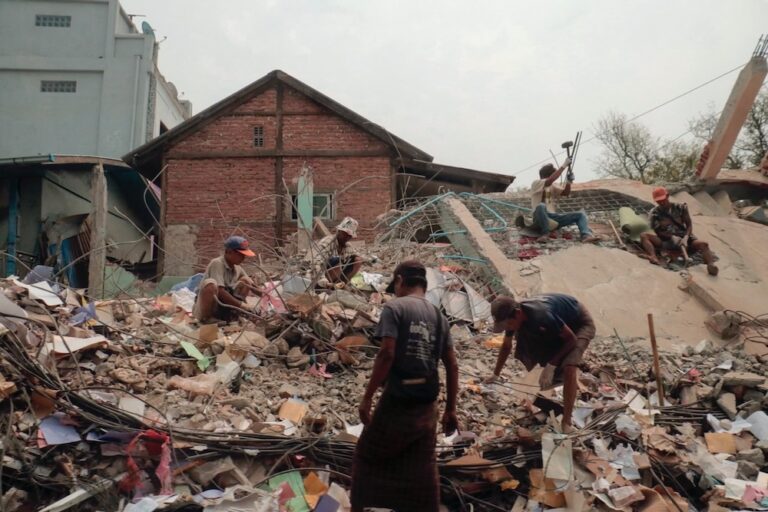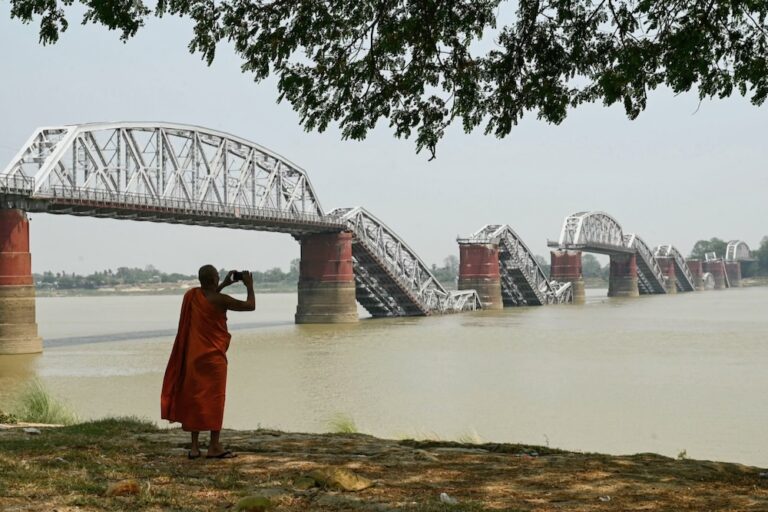"The government is trying to sell their image. It is the first impression people will have (. . .) They want to make it appear that they've abolished all things of the past and are now doing their best," said one Rangoon editor.
(Mizzima News/IFEX) – In another cautious indication of the opening up of Burma’s domestic media environment, interviews with exiled Burmese media figures and activists are proliferating in domestic journals.
The publication of interviews with the “Democratic Voice of Burma”‘s Chief Editor Aye Chan Naing, “Irrawaddy” Editor Aung Zaw and Mizzima’s Managing Editor Sein Win were all permitted in October 2011 by Burma’s censor board.
“We think the government’s policy has totally changed. It started around five or six months ago. A lot has changed,” an editor whose newspaper was allowed to publish an interview with the head of an exiled media outlet told Mizzima.
Popular subjects for the interviewees included sanctions, whether exiled media groups are looking to return to Burma, the Myitsone dam controversy and the relationship between Aung San Suu Kyi and the government.
Referring to their new found freedom in publishing interviews with exiled media figures, one Rangoon editor commented, “I think it is allowed at present since they said all exiles are allowed to return home. Because of this change, I think they allow the interviews with people in exile.”
He added that the interviews were intended not only to promote the newspapers, but also to test the attitude of censors regarding sensitive subjects such as the call for exiles to return to Burma.
On 17 August, President Thein Sein announced that exiles who wanted to return and participate in the country’s development could do so by communicating their intention with respective state and regional governments. However, at the time of the announcement, the censor board still had not approved the publication of interviews with exiled figures.
“Allowing interviews with persons from the exiled media is strange. In the coming period, [the Burmese government] has a lot to discuss with the international community. So, I think that is why they do things [like permitting the publication of interviews with exiles],” said the editor.
Burma is seeking the ASEAN chair in 2014 as well as the abolition of sanctions and resumption of international assistance. However, international criticism of the nature and extent of changes being implemented by the government continues to hamper these aims.
“The government is trying to sell their image. It is the first impression people will have, so they are giving their best. They want to make it appear that they abolished all things of the past and are now doing their best,” added the Rangoon editor.
Some members of the exiled Burma Media Association (BMA) believe that the redundancy of the questions circulated to exiled media figures is part of a strategy by the government to measure the attitude of the exiled media to changes inside the country.
“While it appears that the government has conceded something to some extent, at the same time they want to measure the attitude of journalists in these media organizations. I think they want to evaluate them,” Zin Linn, vice president of BMA, told Mizzima.
Newspapers permitted to publish the interviews are controlled by individuals close to the government and include “Popular”, “Yangoon Times”, “Eleven” and publications of the United Media Group.


